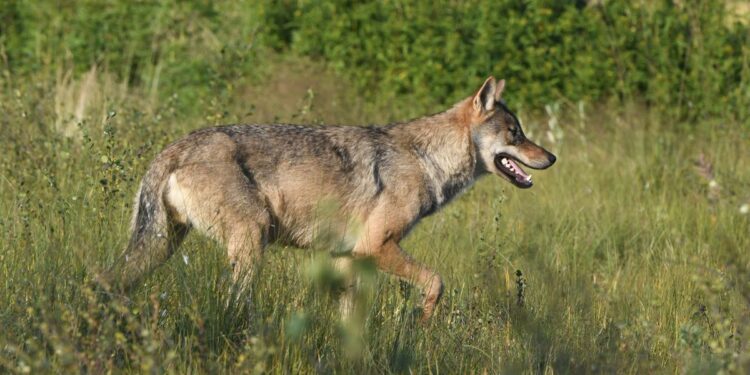Luxembourg’s Green MEP Tilly Metz has sharply criticised the Council of Europe’s Bern Convention Committee decision on Tuesday to lower the protection status of wolves.
“The downgrading of the wolf’s protected status is a hard blow and symbolic of the current political context: at the expense of biodiversity and the environment, the wolf has been instrumentalised to worry farmers and scare the European population,” she said in a statement Tuesday evening. “Instead of authorising the shooting of wolves without sufficient scientific justification, much more should be invested in herd protection to ensure peaceful coexistence between wolves and agriculture.”
Also read:Killing a wolf might set you back a fortune
However, Luxembourg will not change its legislation and will continue to offer the wolf “strict protection”, according to the ministry of the environment. Maiming or killing the strictly protected species can result in a penalty of up to €750,000, the ministry has said.
The ministry said that it had been contacted by several European countries “to ask for Luxembourg’s support and solidarity regarding the protected status of the wolf”. These member states, including Germany, are confronted with a “different reality” than the Grand Duchy, the ministry said.
Indeed, the motion from EU member states at the Council of Europe was sparked by a rise in the wolf population, which has almost doubled in the past ten years from 11,193 in 2012 to 20,300 in 2023, according to EU figures. That has led to an increase in attacks on livestock. The number of farm animals, mostly sheep and goats, killed by wolves in the EU is estimated to be at least 65,500 per year.
Also read:Fourth confirmed wolf sighting in Luxembourg this year
In Luxembourg, wolf sightings are relatively rare. Four sightings were reported in 2023, and there were two cases of sheep being mauled by wolves in the north of the country.
According to the conservation organisation WWF, the wolf was wiped out in Western Europe, including Germany, in the middle of the 19th century. It only survived in eastern and southern Europe.
The decision by the Council of Europe does not automatically mean that the animals can now simply be shot in EU member states. The amendment will enter into force three months after its adoption, unless one-third of the contracting parties raise an objection.
If there is no objection after three months, the EU Commission can submit a proposal to amend the protected status of the wolf in EU law. This proposal will in turn require majority approval of EU member states and a majority vote in the European Parliament.
The Council of Europe is independent of the EU. Its 50 members include the EU member states as well as countries such as the UK and Turkey. It is responsible for safeguarding human rights, but is also responsible for compliance with the Bern Convention, an international treaty adopted in 1979 for the protection of wild animals and plants.
(This article was first published by Luxemburger Wort. Translation, editing and additional reporting by Duncan Roberts.)
Source: DPA mit Florian Javel
Source link : http://www.bing.com/news/apiclick.aspx?ref=FexRss&aid=&tid=67517121556b413c8a9bd1371add2b23&url=https%3A%2F%2Fwww.luxtimes.lu%2Feuropeanunion%2Fluxembourg-mep-appalled-by-plans-to-downgrade-wolf-protection%2F28489537.html&c=12826490768224654227&mkt=en-us
Author :
Publish date : 2024-12-04 05:24:00
Copyright for syndicated content belongs to the linked Source.


